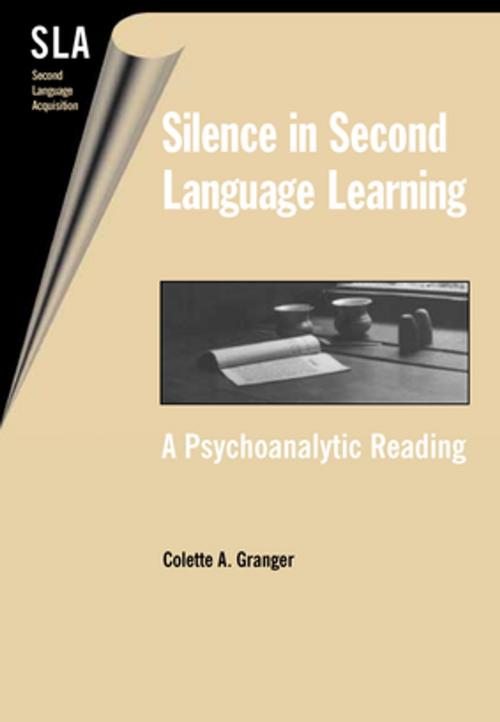Silence in Second Language Learning
A Psychoanalytic Reading
Nonfiction, Reference & Language, Language Arts, Linguistics| Author: | Dr. Colette A. Granger | ISBN: | 9781788920407 |
| Publisher: | Channel View Publications | Publication: | February 16, 2004 |
| Imprint: | Multilingual Matters | Language: | English |
| Author: | Dr. Colette A. Granger |
| ISBN: | 9781788920407 |
| Publisher: | Channel View Publications |
| Publication: | February 16, 2004 |
| Imprint: | Multilingual Matters |
| Language: | English |
Within the complex process of second language acquisition there lies a highly variable component referred to as the silent period, during which some beginning second language learners may not willingly produce the target language. Silence in Second Language Learning claims that the silent period might represent a psychical event, a non-linguistic as well as a linguistic moment in the continuous process of identity formation and re-formation. Colette Granger calls on psychoanalytic concepts of anxiety, ambivalence, conflict and loss, and on language learning narratives, to undertake a theoretical dialogue with the learner as a being engaged in the psychical work of making, and re-making, an identity. Viewed in its entirety, this study takes the form of a kind of triangulation of three elements: the linguistically described phenomenon of the silent period; the psychoanalytically oriented problem of the making of the self; and the real and remembered experiences of individuals who live in the silent space between languages.
Within the complex process of second language acquisition there lies a highly variable component referred to as the silent period, during which some beginning second language learners may not willingly produce the target language. Silence in Second Language Learning claims that the silent period might represent a psychical event, a non-linguistic as well as a linguistic moment in the continuous process of identity formation and re-formation. Colette Granger calls on psychoanalytic concepts of anxiety, ambivalence, conflict and loss, and on language learning narratives, to undertake a theoretical dialogue with the learner as a being engaged in the psychical work of making, and re-making, an identity. Viewed in its entirety, this study takes the form of a kind of triangulation of three elements: the linguistically described phenomenon of the silent period; the psychoanalytically oriented problem of the making of the self; and the real and remembered experiences of individuals who live in the silent space between languages.















